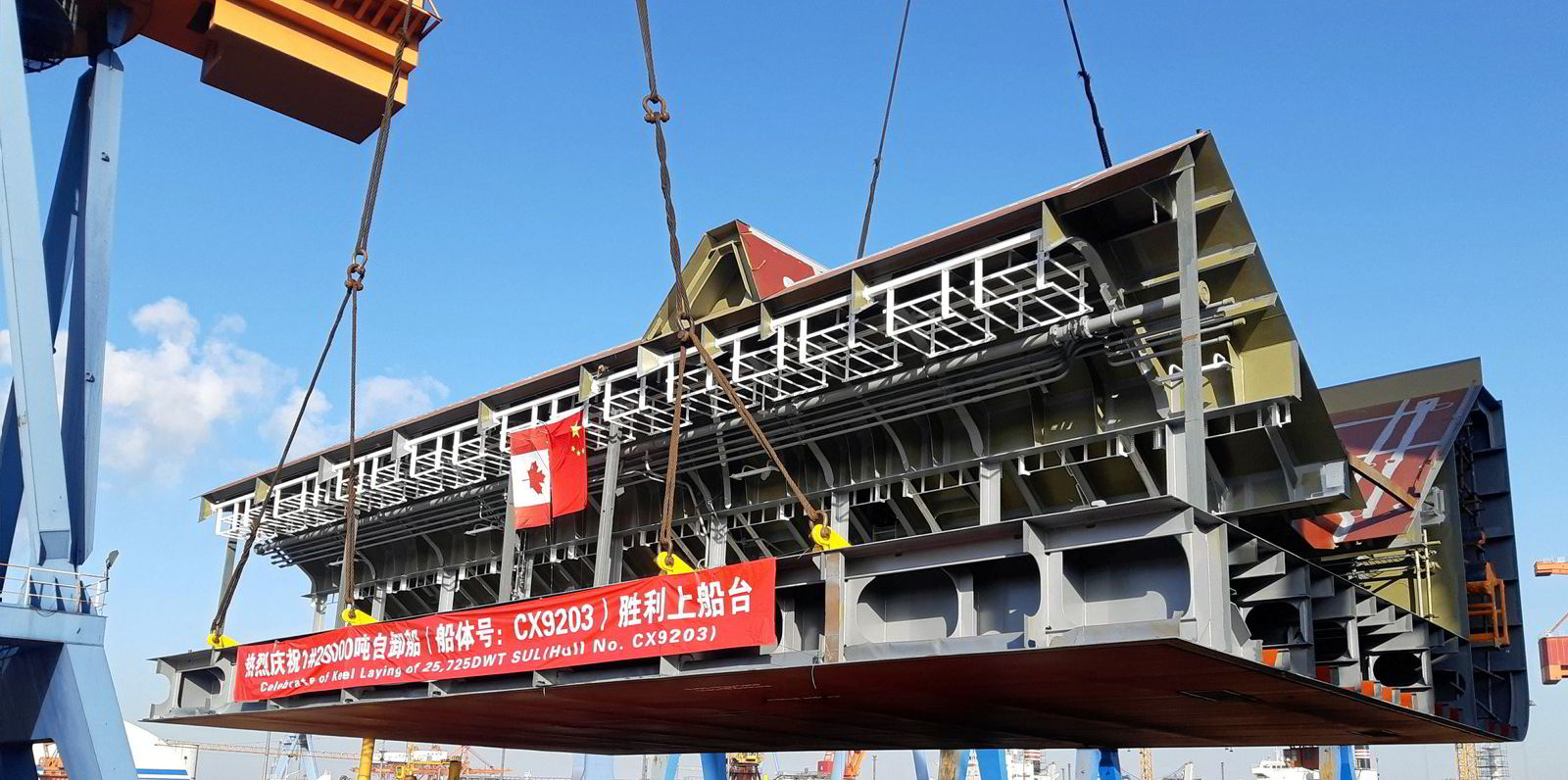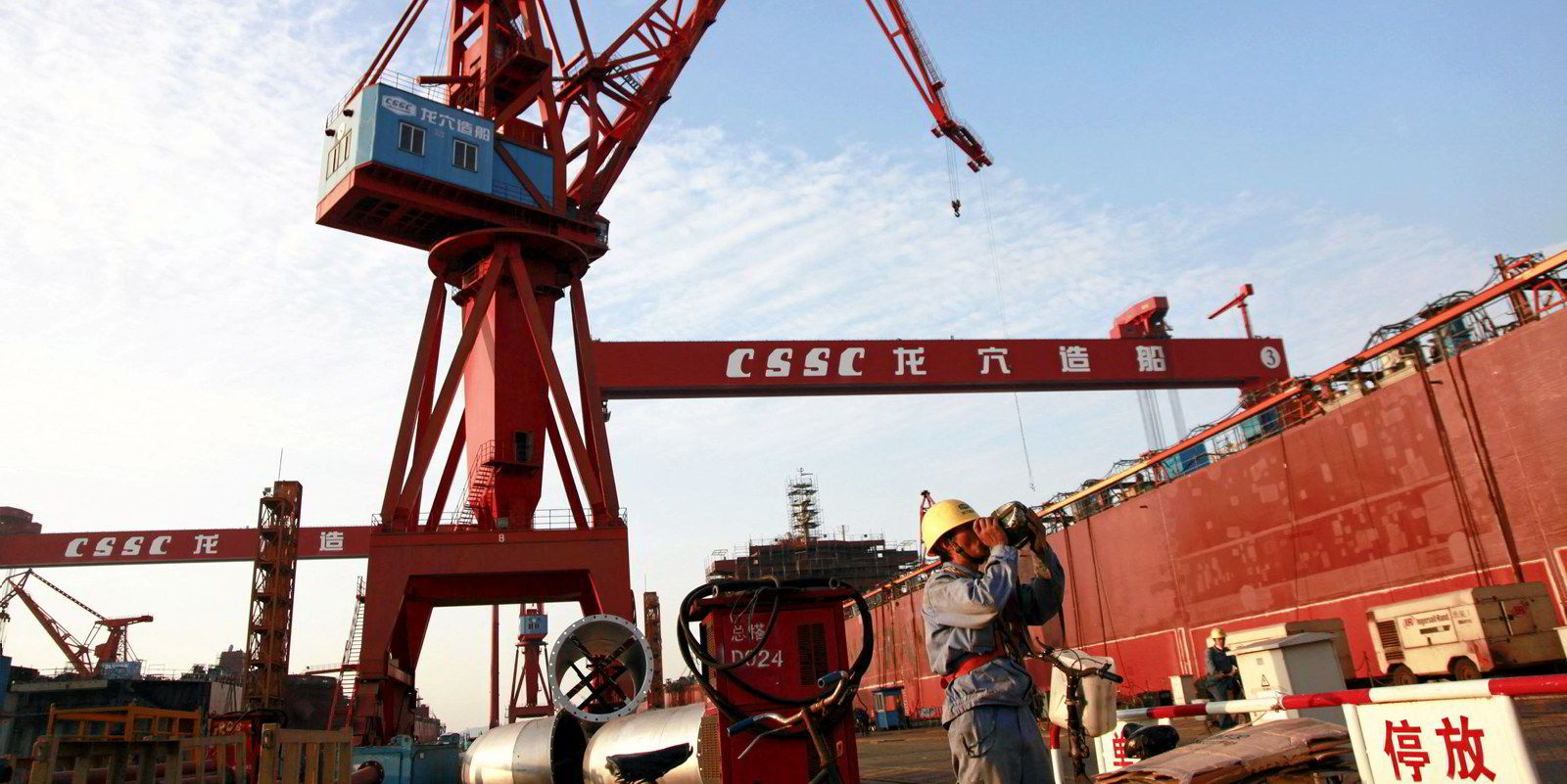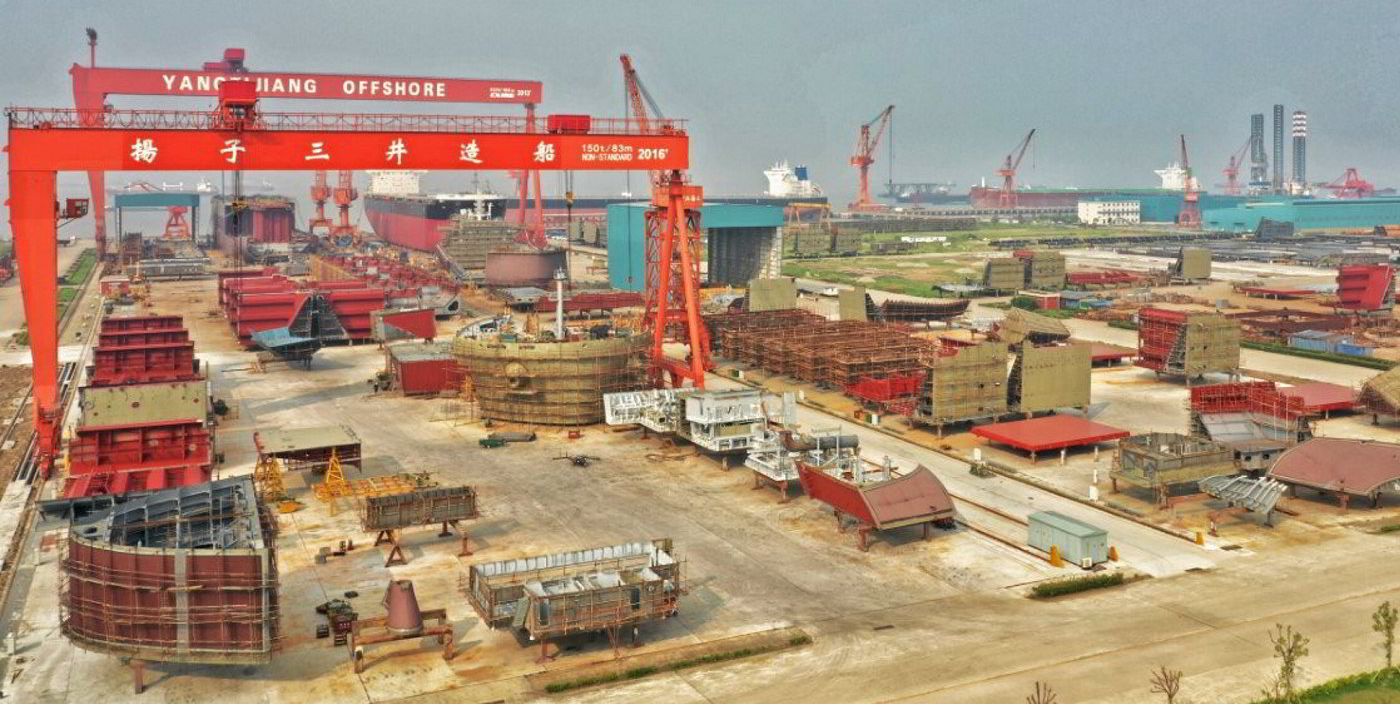Shanghai-listed China CSSC Holdings has enjoyed a booming newbuilding market this year but warned of erosion of production margins amid high steel costs.
The flagship unit of state conglomerate China State Shipbuilding Corp owns major Chinese yards including Shanghai Waigaoqiao Shipbuilding, Guangzhou Shipyard International and Chengxi Shipyard.
In a recent conference call, company executives revealed CSSC Holdings was able to take advantage of healthy newbuilding demand with delivery slots filled until the end of 2023.
“The market has started to recover, and we are seeing better newbuilding prices and more orders,” president Ji Jun said.
Clarksons Research data showed 484 vessels totalling 42m dwt were ordered in the first four months of this year, up from 300 ships totalling 19m dwt in the same period of 2020.
The Clarksons Newbuilding Price Index has risen to about 135.6 points, the highest since 2015, boosted by strong gains in bulker and boxship contract values.
'Chunky orderbook'
“The shipbuilding market is warming up and we now have a rather chunky orderbook,” CSSC Holdings chairman Zhang Yingdai said.
As of the end of 2020, the company had an orderbook of 161 merchant ships totalling 13.9m dwt.
CSSC Holdings secured newbuilding orders for 31 vessels in the first quarter, including six 16,000-teu containerships booked by Mediterranean Shipping Co for $750m.
But the strong newbuilding market has yet to be fully reflected in the company’s profitability.
CSSC Holdings reported a net profit of CNY 91.9m ($14.3m) between January and March, including government subsidies totalling CNY 87.3m. It recorded a net loss of CNY 5.85m in the first quarter of 2020.
Revenue fell to CNY 10.1bn from CNY 10.4bn.
“The prices of raw materials such as steel have been rising lately. This could pressure the margins of our core business,” vice president Tao Jian said.
“We will be actively seeking to strategically cooperate with steel producers. We will manage the costs with bulk purchasing to gain the economies of scale.”
Looking forward, CSSC Holdings aims to harness the industry trend of decarbonisation by taking advantage of the expertise of WinGD, a leading marine engine maker owned by its parent.
“Newbuilding demand for vessels with lower carbon emissions is looking good,” Ji said.
“We will continue to ramp up our efforts in research and development and have more preparation for low-emission vessels.”






